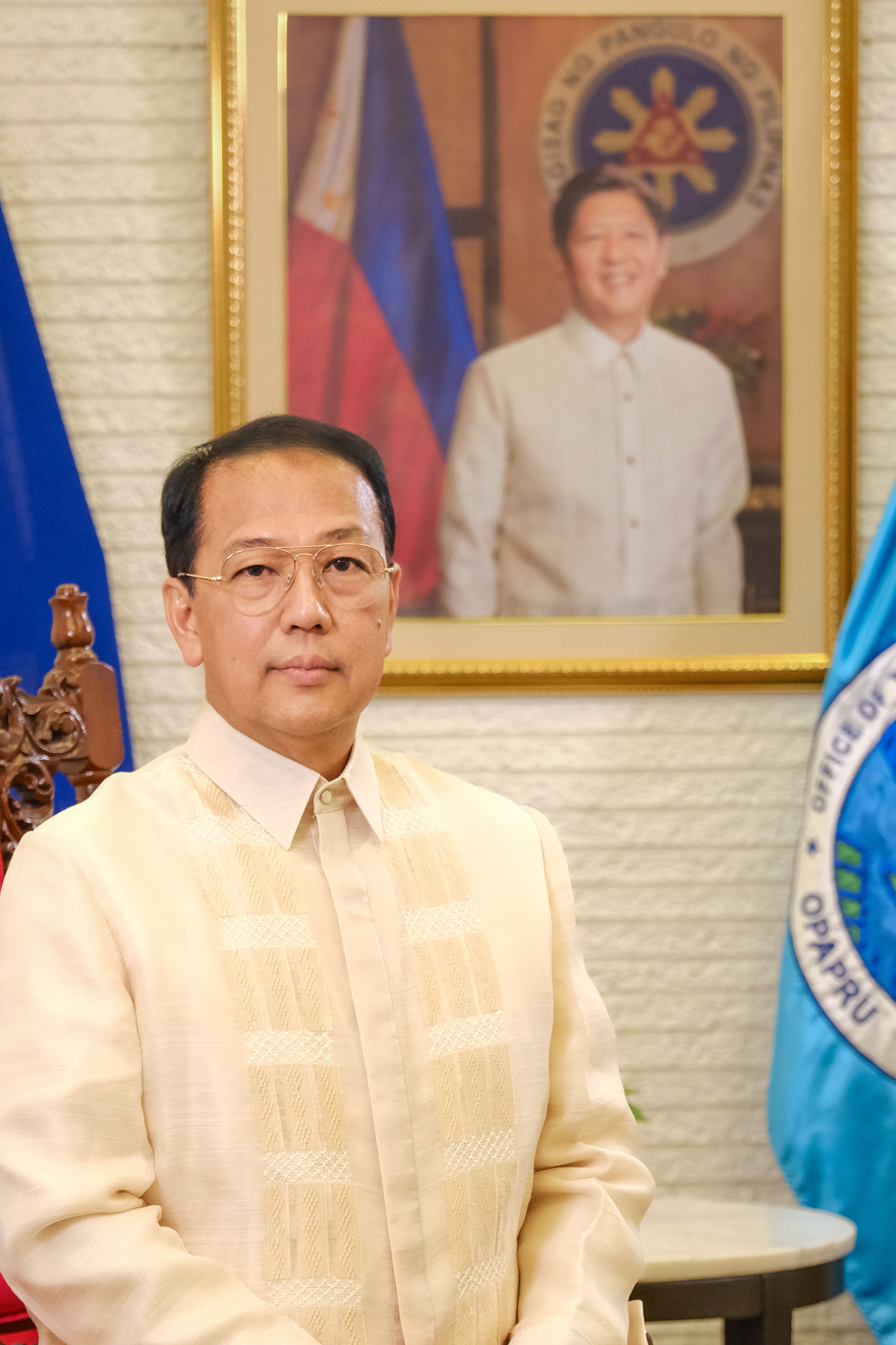GUEST COLUMNIST

“Ultimately, what gets measured gets managed. I think if we don’t get conscious of measurement, we will never be able to improve our performance,” said Guillermo ‘Bill’ M. Luz, chief resilience officer of the Philippine Disaster Resilience Foundation (PDRF) at the end of his message of commitment as the new Chairperson of the Multi-Sector Governance Council (MSGC) of the Office of the Presidential Adviser on Peace, Reconciliation and Unity (OPAPRU) during the oath-taking ceremony of its new MSGC members on Tuesday, June 25.
The MSGC is an integral part of OPAPRU’s Performance Governance System (PGS), a holistic and collaborative framework for designing, executing, and sustaining strategy roadmaps towards institutional reforms. It is an adaptation of the Balanced Scorecard Management System developed by Robert Kaplan and David Norton of the Harvard Business School. The Balanced Scorecard System was adapted in the context of governance in the Philippines by economist Jesus ‘Jess’ P. Estanislao, our 6th Socio-economic Planning Secretary and Director-General of the National Economic and Development Authority (NEDA). He is also from Harvard.
The oath taking ceremony of the new set of members of the MSGC marked the next milestone in our organization’s PGS journey. After a brief pause to attend to the pressing tasks of getting the nation through the trying period of a pandemic, the OPAPRU had to reorganize for our goal of reaching the PGS proficiency stage, then later institutional stage.
The OPAPRU started its PGS journey through a strategic planning workshop facilitated by the Institute of Solidarity in Asia (ISA) in 2019. In 2020, then known as the Office of the Presidential Adviser on the Peace Process (OPAPP), the agency received the Gold Trailblazer Award at the Initiation Stage. In 2021, it received the Silver Trailblazer Award for its Compliance Stage. Aside from these achievements, OPAPP earned the Most Outstanding Accounting Office Award given by the Association of Government Accountants of the Philippines in 2021.
I was introduced to the PGS while I was still in the Armed Forces of the Philippines (AFP) in 2004 when we were writing the Philippine Military Academy Strategic Roadmap 2005-2015 with the group of Secretary Jess Estanislao. The AFP with its Major Services then followed and later implemented their more refined Transformation Roadmaps.
When I assumed the leadership of then OPAPP in 2018, after my retirement in the AFP, the adoption of the PGS as a framework to help us translate our vision (of a just and lasting peace for the nation) into actionable strategies was one of the first things I and the new management team put into place. As an agency, we made the commitment to collectively develop as an efficient and effective unit in order to deliver our mandate to manage, direct, integrate, and supervise the implementation of the Comprehensive Peace Process.
Chairperson Luz, continuing in his speech, cited the most recent Philippine Human Capital Review by the World Bank, where the bank gave the Philippines a Human Capital Index (HCI) score of 0.52.
“It was among the lowest if not the lowest in ASEAN, we (the Philippines) are below Indonesia, Vietnam, well below Malaysia, well below Thailand, way, way below Singapore,” Bill said. The HCI “calculates the contributions of health and education to worker productivity.” A score of 0.52 means a “Filipino born today, by the time he reaches 18 years old will only achieve 52 percent of his potential in terms of productivity and contribution … If we start late in terms of investing in HCI, we miss zero to six years or zero to 10 years, the trend is harder to reach or irreversible.”
As a long-time member and chairperson of the National Competitiveness Council, Bill also mentioned global competitiveness and regional competitiveness. The disparity between the country’s developing regions and the regions which suffered from conflict is so pronounced. This makes it obvious that “there’s no development if there’s no peace, and there’s no peace if there’s no development.” Even in mathematics, equations that are formulated this way are among the most difficult to solve – what more when it deals with the lives of our people.
We could not agree more with the words of Chairperson Luz. Reports from institutions like the World Bank should be properly heeded as a measure of our progress in the work that we are doing. In fact, the factors that get into the index, such as numbers representing nutrition, stunted growth, training and education, are purposively integrated to our programs in so-called peace and development focus areas. Admittedly, we have much to learn as an agency when it comes to these things. We are confident that with the guidance of our new set of MSGC members, the OPAPRU will be able to do this and contribute in full to peace and nation building.
Aside from Chairperson Bill Luz, we welcomed the new members of the MSGC and the OPAPRU family – Vice Chairperson Austere A. Panadero, executive director of Zuellig Family Foundation; members Amina Rasul-Bernardo, president of the Philippine Center for Islam and Democracy; Undersecretary Maria Catalina E. Cabral of the Department of Public Works and Highways; Professor Jasmin N. Galace of the Department of International Studies, Miriam College; Evaristo “Titoy” S. Francisco, Jr., chief executive officer, Institute for Solidarity in Asia; Dr. Cameron P. Odsey, DVM, former regional executive director for CAR of the Department of Agriculture; and Professor Manuel J. De Vera of the Asian Institute of Management.
With the right metrics and measurements in pursuing our sworn objectives, we hope that the milestones we reach in ‘Peace and Development Focus’ areas do not remain as anecdotes but are rather reflected as concrete achievements. We hope that ultimately what we will be counting are the smiles on the faces of our people and the messages of appreciation from those whose lives were uplifted.
(Secretary Carlito G. Galvez, Jr., is the presidential adviser on peace, reconciliation and unity. He advises the President on the implementation of the Philippine Comprehensive Peace Process.)